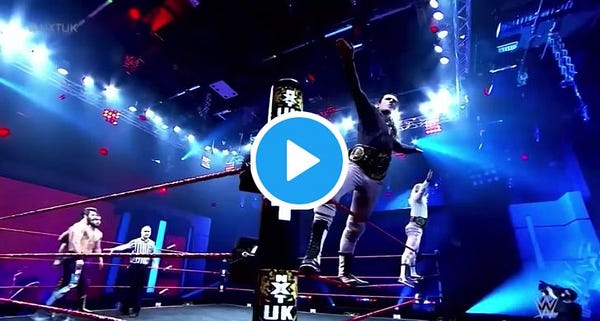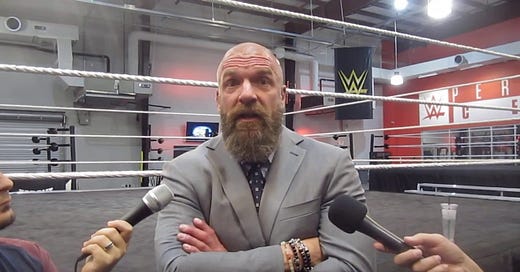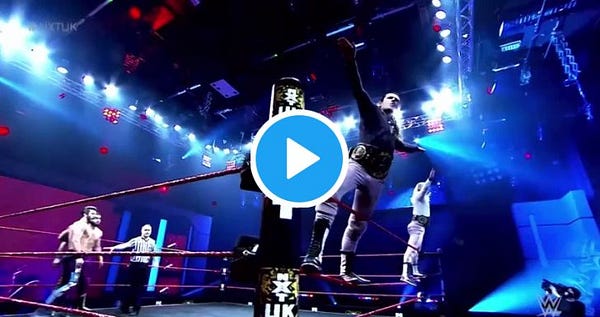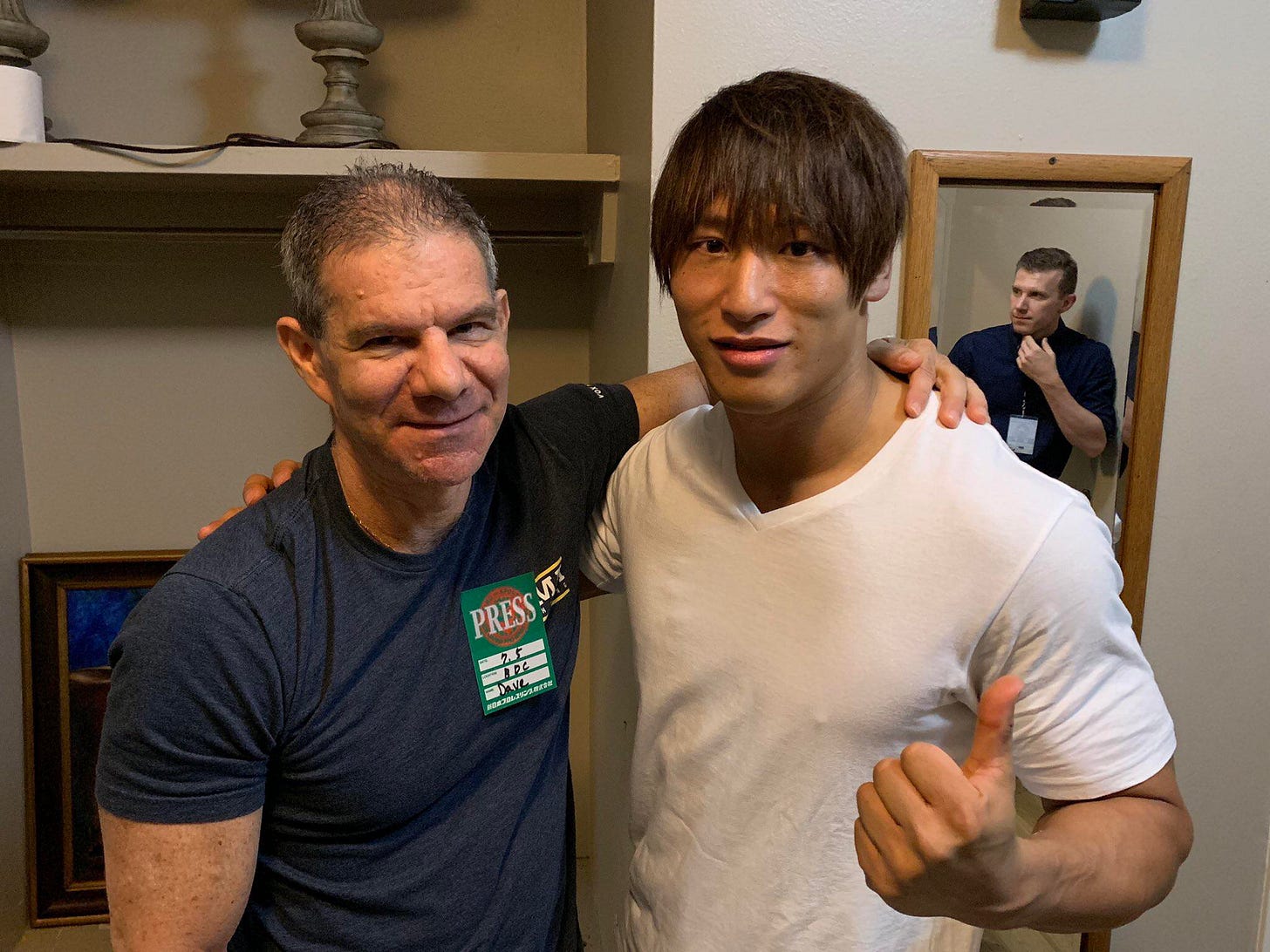“No-one is more hated than he who speaks the truth.” - Plato
I don’t feel hated, never have, and as a professional journalist, it’s my job not to care. But as I continue to observe the pro wrestling media from a distance, it concerns me that the slippery slope of partisan coverage has plunged everyone into the sea, with only those who beg to be loved being thrown a life jacket.
If that seems like a convoluted analogy, let me attempt to explain.


In decades gone by, sports journalists kept their allegiances - often formed in childhood - largely to themselves, because to be thought of as a Manchester United fan while covering that club as a professional journalist was a strike against your integrity. If that integrity was damaged, it might be all over for you; if you had been compromised, so had the newspaper’s pretence of being the bastion of truth, which would inevitably cost them readers.
You might even find yourself out on your ear.
These days, with celebrity punditry very much in vogue, things have changed. While the likes of Gary Neville and Jamie Carragher will often be accused of bias, they choose to embrace it, because it makes no sense to publicly deny a fandom that was obvious throughout their on-field careers. This attitude soon spilt into the traditional media, too, as journalists began to state which clubs they supported, as the argument evolved to suggest that, as long-time dedicated fans, they had valuable connections inside the club that a new, unbiased reporter would struggle to match.
The proof of the pudding, of course, was always in the eating, and any Manchester United fan penning only positive stories about the club would be found out just as in the past. (For an example of a fan-cum-journalist, read the excellent work of the United We Stand editor Andy Mitten.)
Ethics in journalism is paramount because news reporting is a filthy business. To get your inside scoops, you have to be close to someone within the organisation who has that information, which often means trading those stories for depicting the informant in a pleasant light, or out of sight entirely.
This is where reporters must prove that they have the highest standards of impartiality, as well as unimpeachable ethics, as they choose which stories to let go in order to report on those with more serious consequences. In recent world politics, we have seen how many such journalists have failed to reach those standards.
Pro wrestling has had a difficult relationship with news outlets for centuries. Even at the end of the 20th century, this often came through the desire to protect kayfabe, as promoters and wrestlers solemnly swore to the legitimacy of worked bouts. Scandals thus occurred often, especially as extra entertainment was added to the mix, and more of the sports element of pro wrestling was forced to make way, making it easier to see co-operation.
In the modern era, Vince McMahon has had a good relationship with the press only when he has wanted something in return: the WWE PR department is always a little more helpful during Wrestlemania season, and further back, he made sure to have open lines of communication when he was most under fire, such as during the sex and drug scandals in the early-1990s, and then when WCW was beating the WWF in the Monday night ratings between 1996-1998.
With WWE’s power now almost absolute, though, the informed press is shut out of such contact (WWE does have PR reps who will field email questions at their whim), to the point that any outfit being granted access to WWE talent for interviews should be considered red-flagged. To give a real world example as to the lengths WWE goes to restrict coverage from those it does not control, at Fighting Spirit Magazine I was only able to obtain interviews with WWE talent through freelancers who never disclosed our name, and in all but the last of my 9 years as editor, our photographers either had to sneak cameras to their seats in the crowd, or had to risk their limited access by selling photographs to us anonymously.
It would have saved me a lot of personal stress had FSM towed the WWE line and enjoyed the perks of interview access and official photography, but this “favour” would’ve had to be returned, and I never considered the idea of ignoring an important story, such as the allegations of racism in WWE made by Alberto “Del Rio” Rodriguez in issue 112, in an to attempt to curry favour.
Unfortunately, few other editors feel the same way, and so many are more than willing to compromise impartiality for the endgame of clicks or sales. It is for this reason that I’ve crudely - but not genuinely - suggested that the simplest path to success in journalism is to pick a popular subject and then write hyperbolic praise for it, so as to attract the support of its fans and, more importantly, its creators, who’ll boost your profile in agreement.

The rise of the “mark journalist”, and the editors who back them, has become of major benefit to wrestling promotions who have attempted to distract viewers from serious allegations made against their talent. I have sympathy with young writers who have not had the experience or training in basic journalistic ethics - how many “journalists” in wrestling are qualified or have worked in a newsroom? - but this article must act as a teaching moment if that compassion is to be retained.
Organisations such as the NUJ or IPSO have dedicated codes of conduct, but in short, journalists must not put themselves in positions where their integrity can be compromised. In the case of professional wrestling, this includes but is not limited to considering the subjects of their reporting to be their friends; adorning their merchandise; asking for autographs or photographs; or generally endorsing products or individuals for material or reputational gain.
In pro wrestling, no-one is more hated than he who speaks the truth.
But to every journalist, truth, ethics, and impartiality must be what is most important.
A Little Bit Of Housekeeping
There will be a second newsletter this week, with some match reviews and podcast recommendations.
I’m really interested in your feedback to the first several issues of Riffing On Wrestling. Please comment here or reach out to me at brian(at)hardcopy(dot)ie.
I am available for further editing and occasional writing work. I have credits for various international newspapers, news agencies, and websites, and also a decade of magazine editor’s experience. You can inquire about these, and my rates, by emailing brian(at)hardcopy(dot)ie. I can also provide professional editing feedback, or offer advice or mentoring, by prior agreement and through the same email address.








Insightful as always. I loved FSM partially because of this integrity you all showed in it (Other part was access to wrestling history). I am happy I still can read such articles as this (and it being free is a sin... which I am gladly exploiting).